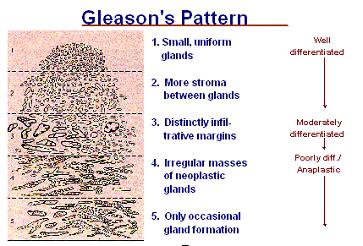Histopathologic Grade
Home > Clinical Concepts In Radiation Oncology > Tumor Classification > Histopathologic Grade
Can we please get your advice on this one question?
Tumor grade is a system used to classify cancer cells in terms of how abnormal they look under a microscope and how quickly the tumour is likely to grow and spread. Many factors are considered when determining tumour grade, including the structure and growth pattern of the cells. The specific factors used to determine tumour grade vary with each type of cancer.
Histologic grade, also called differentiation, refers to how much the tumour cells resemble normal cells of the same tissue type. Nuclear grade refers to the size and shape of the nucleus in tumour cells and the percentage of tumour cells that are dividing. Tumor grade should not be confused with the stage of a cancer. Cancer stage refers to the extent or severity of the cancer, based on factors such as the location of the primary tumour, tumour size, number of tumors, and lymph node involvement (spread of cancer into lymph nodes).
The tumour grade will be determined by following procedure. If a tumour is suspected to be malignant, a doctor removes a sample of tissue or the entire tumour in a procedure called a biopsy. A pathologist (a doctor who identifies diseases by studying cells under a microscope) examines the tissue to determine whether the tumour is benign or malignant.

Figure: a shows the grading system for prostate cancer
The pathologist can also determine the tumour grade and identify other characteristics of the tumour cells.
In general, a lower grade indicates Fig:(a) a slower-growing cancer and a higher grade indicates a faster-growing one.
Grade I: cancer cells that resemble normal cells and aren't growing rapidly
Grade II: cancer cells that have features between grades I and III - they don't look like normal cells and are growing somewhat faster than normal cells
Grade III: cancer cells that look more abnormal and may grow or spread more aggressively
Questions:
1. Histopathologic grade helps to know about the
a) Type of cancer
b) Stage
c) Size
d) Differentiation
Answers:
1. d) Differentiation
References:
3. http://training.seer.cancer.gov/images/prostate/gleason_pattern.jpg
Home > Clinical Concepts In Radiation Oncology > Tumor Classification > Histopathologic Grade
FREE Infographic What successful people believe. What successful people do
Dictionary of Cancer Terms
Need help understanding a word? Here is an electronic resource that gives meaning to Cancer terms and their usage.

StrengthsFinder 2.0
